Understanding measurements Worksheets for Ages 4-8
28 filtered results
-
From - To
Welcome to our "Understanding Measurements Worksheets" designed specifically for ages 4-8! Our engaging worksheets help young learners grasp essential measurement concepts through fun activities. Explore topics such as length, weight, volume, and more, using colorful visuals and interactive challenges to encourage hands-on learning. Each worksheet is tailored to develop critical thinking and boost confidence in early math skills. Ideal for parents and educators alike, these resources can be easily printed and incorporated into daily learning routines. Watch your child’s understanding grow as they measure, compare, and apply measurement techniques in real-life contexts. Let’s start measuring the fun today!
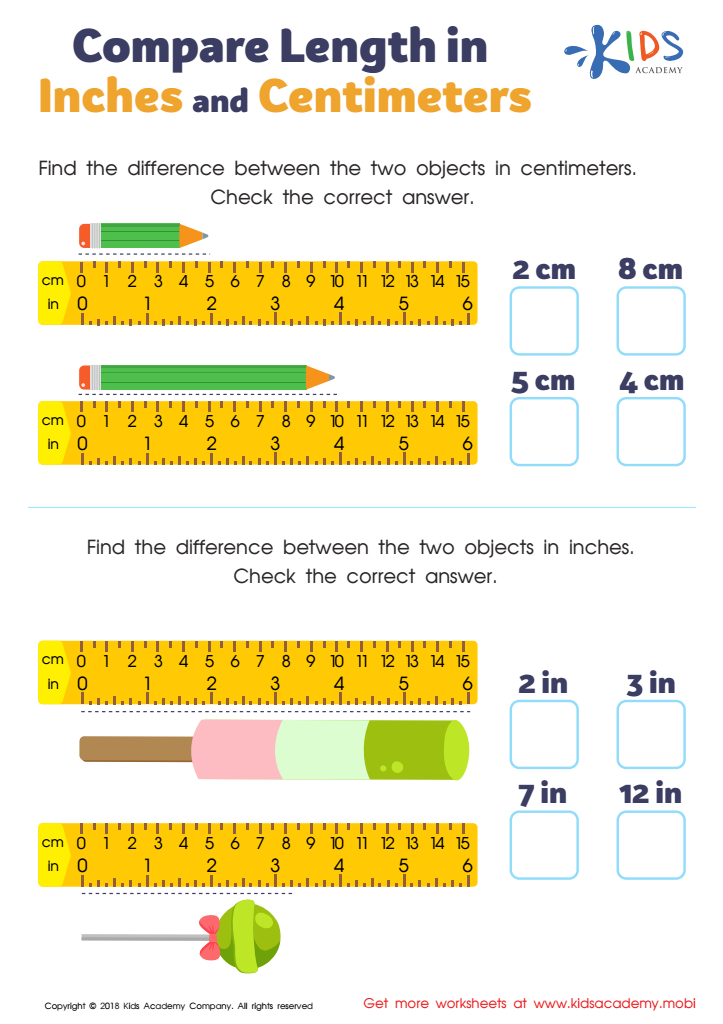

Compare Length in Inches and Centimeters Worksheet
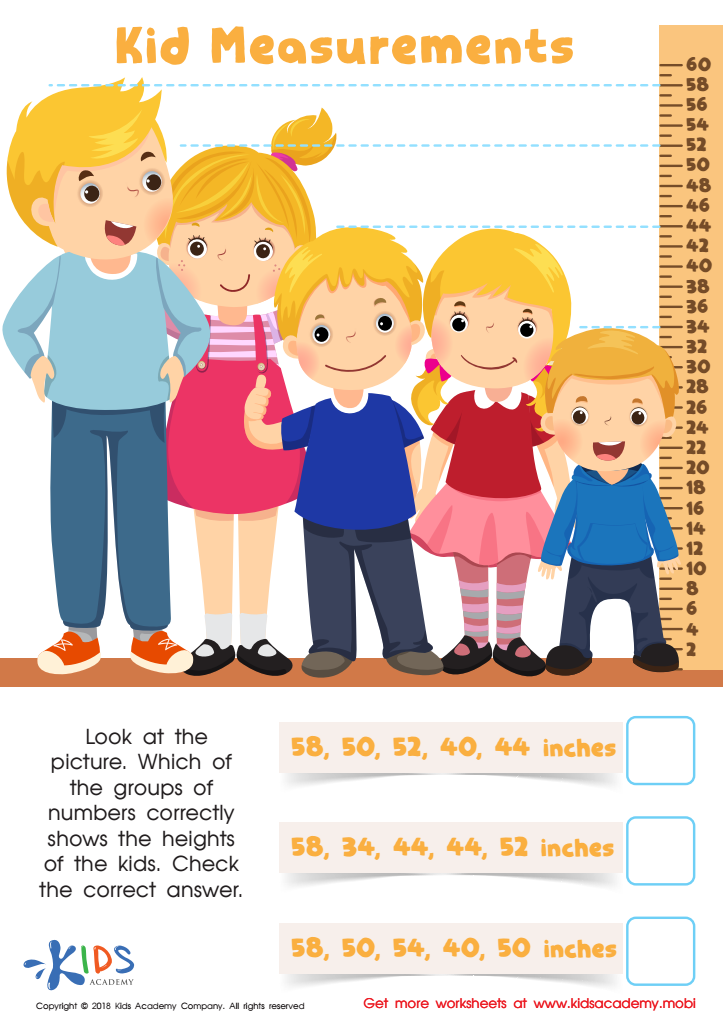

Kids Measurements Worksheet
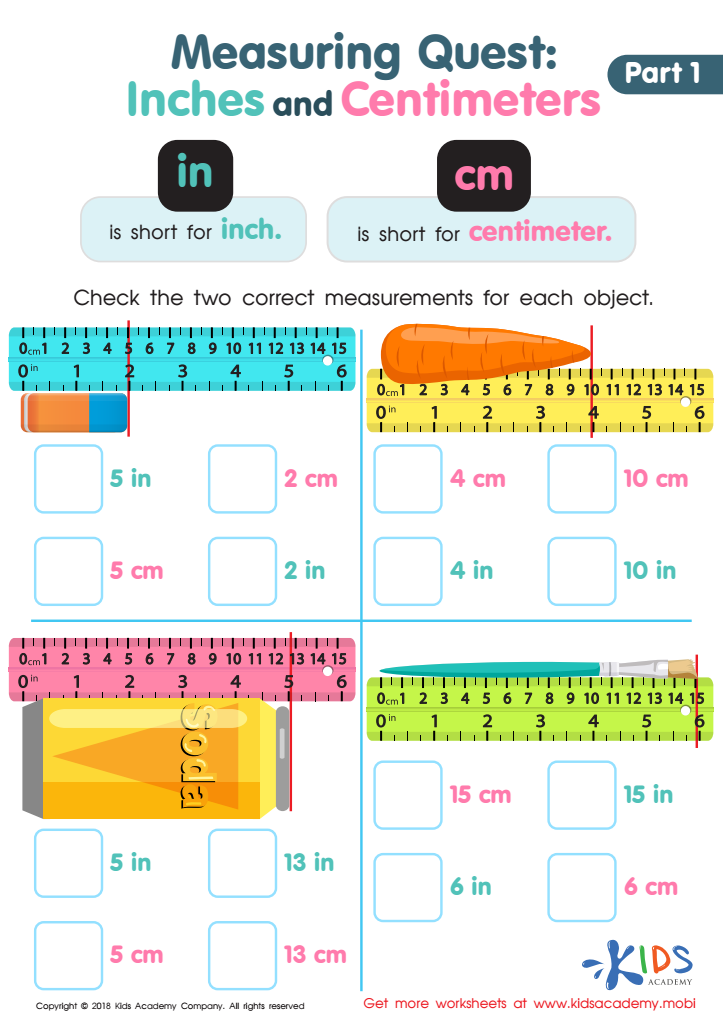

Measuring Quest: Inches and Centimeters Worksheet
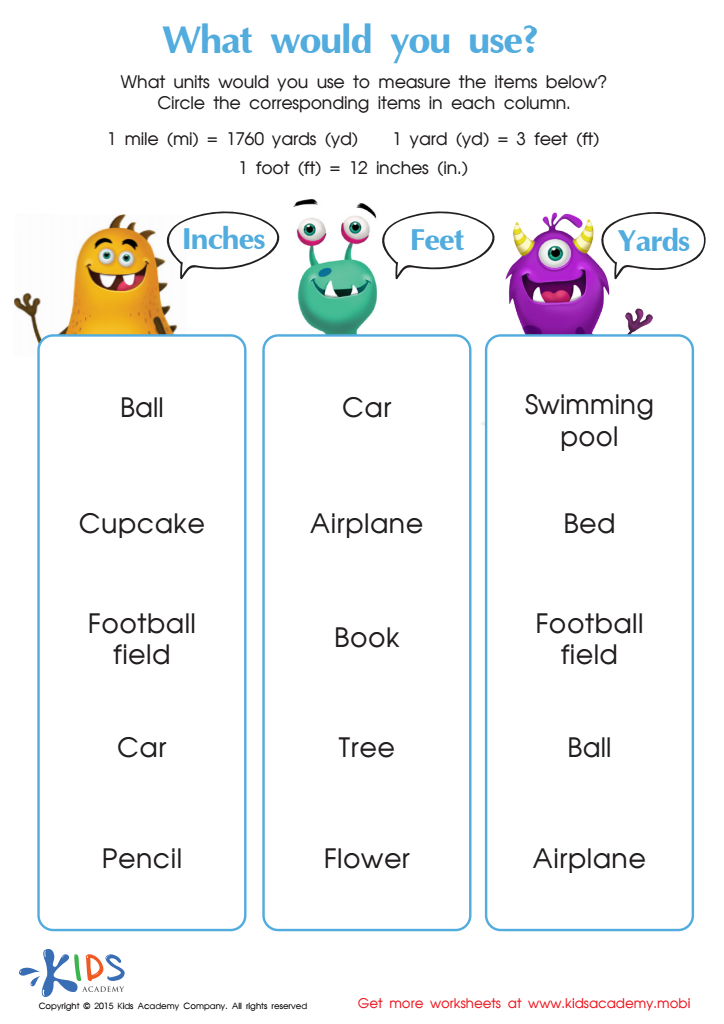

Learning about measuring objects in inches, feet and yards Worksheet
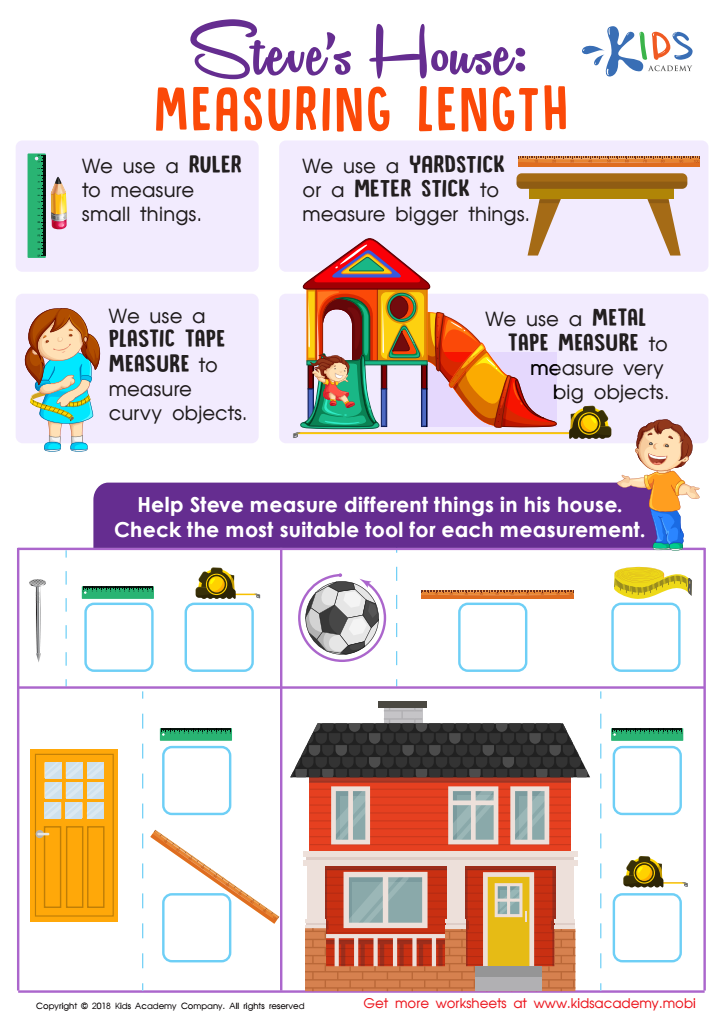

Steve's House: Measuring Length Worksheet
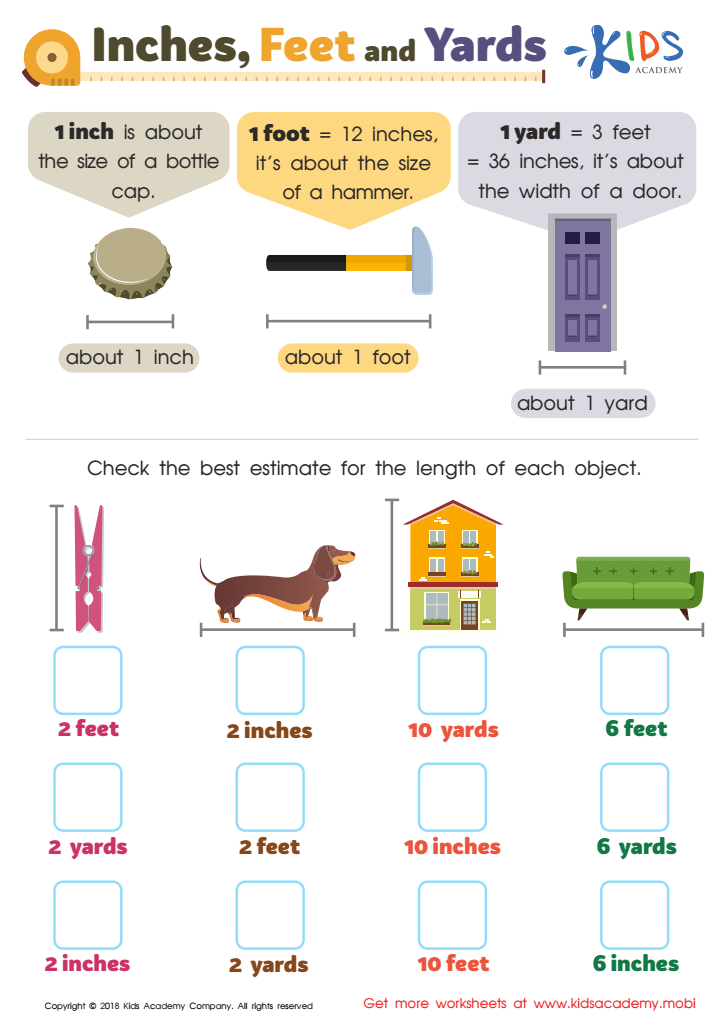

Inches, Feet and Yards Worksheet
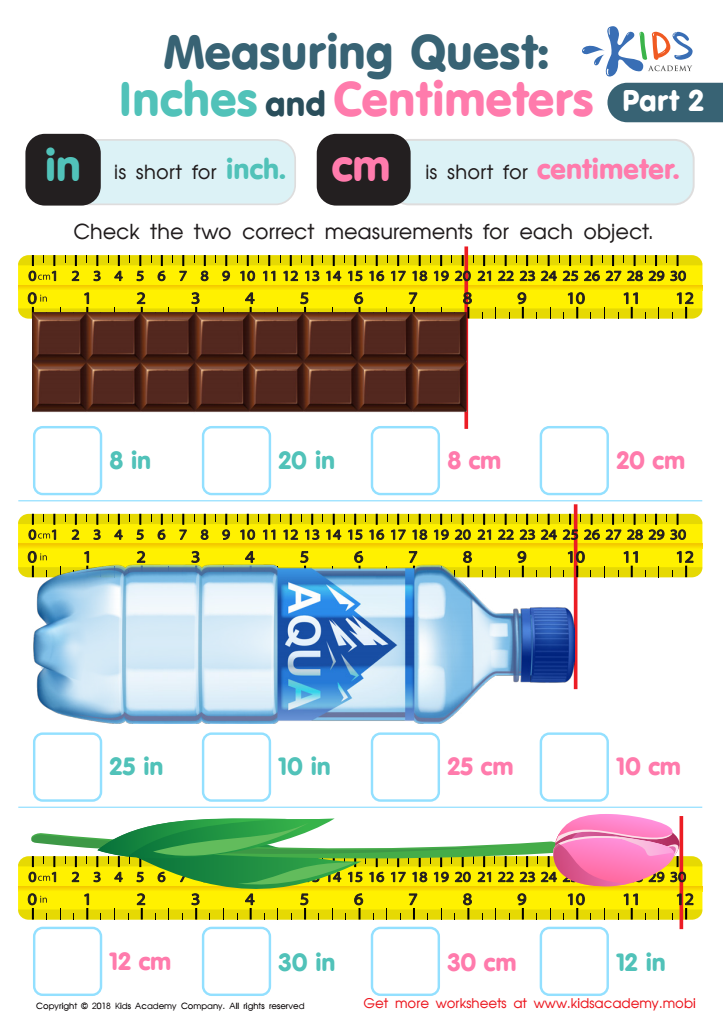

Measuring Quest: Inches and Centimeters - Part 2 Worksheet
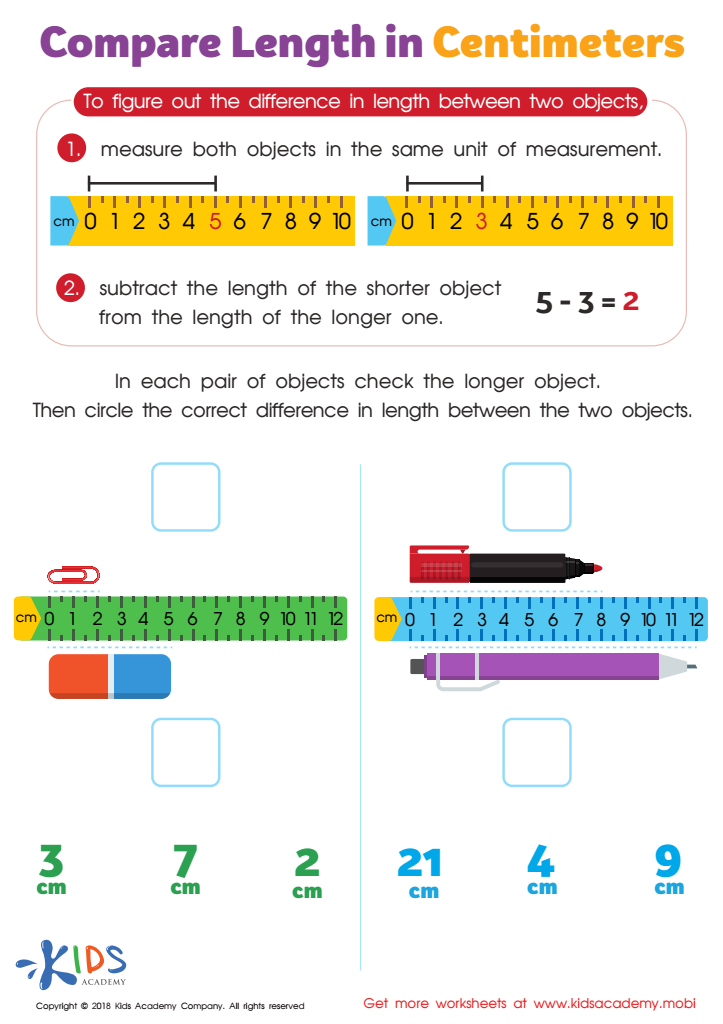

Compare Length in Centimeters Worksheet
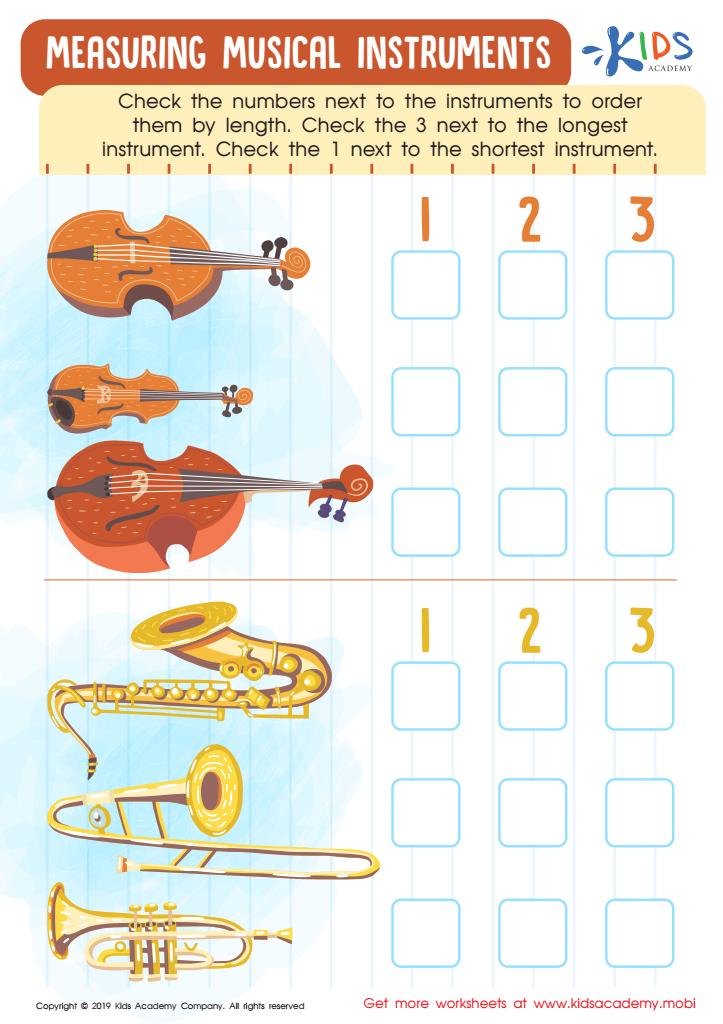

Measuring Musical Instruments Worksheet
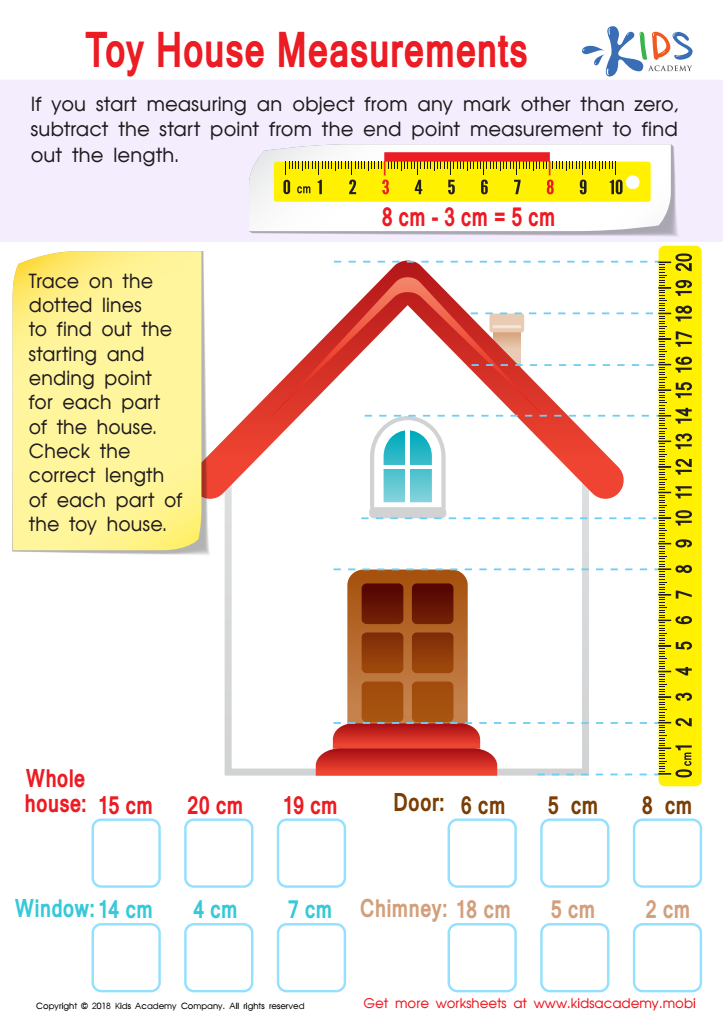

Toy House Measurements Worksheet
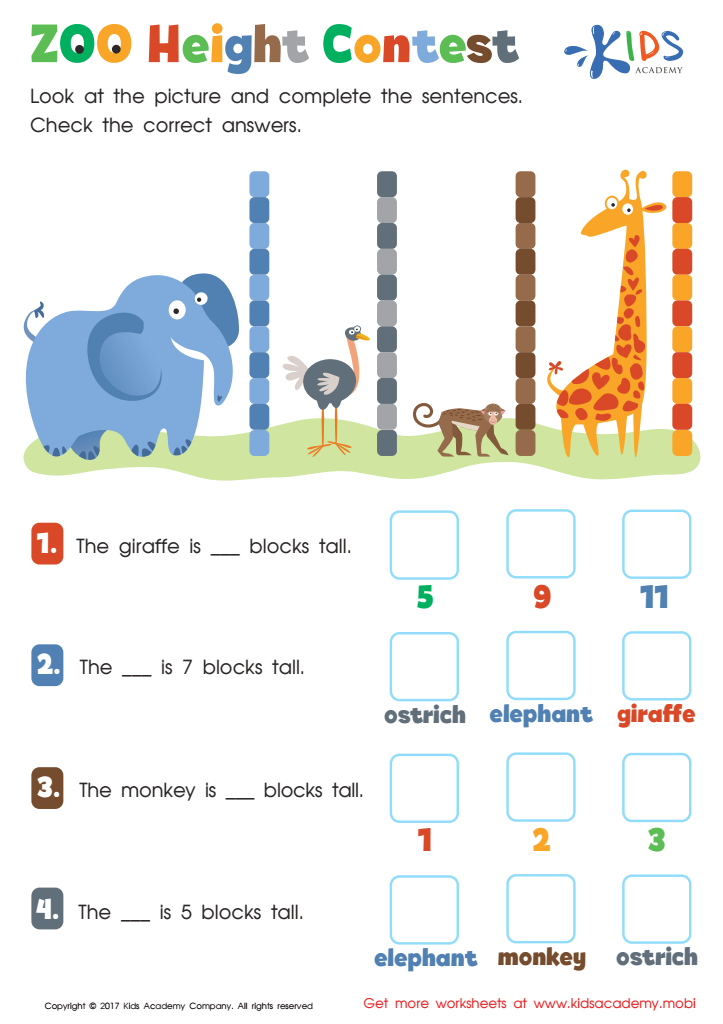

Zoo Height Contest Worksheet
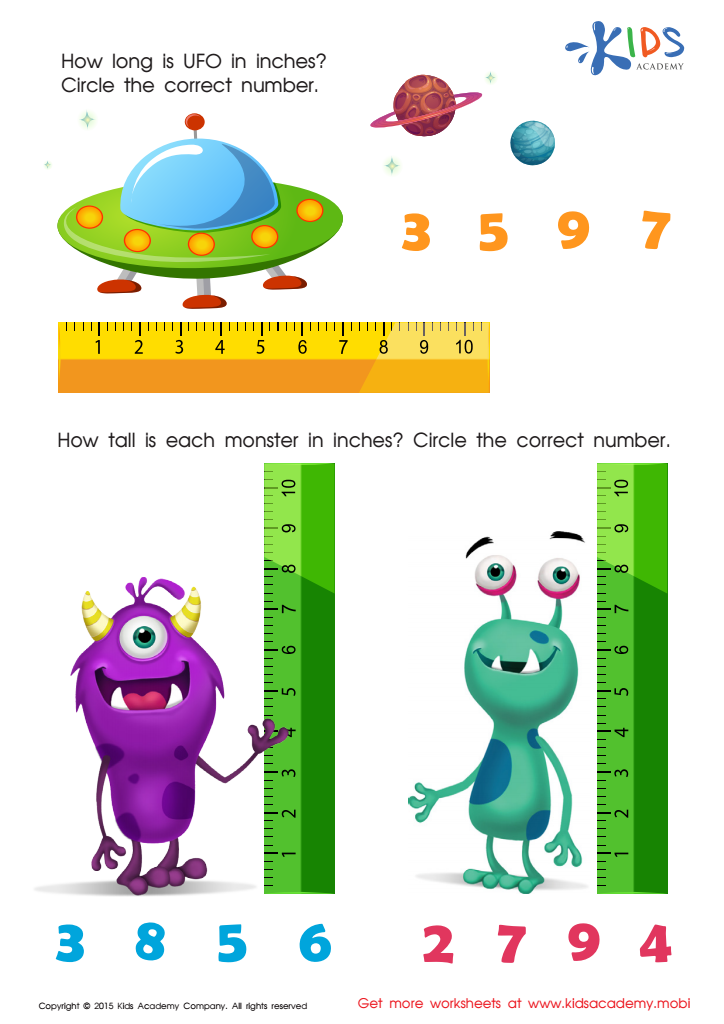

Measuring in Inches Worksheet
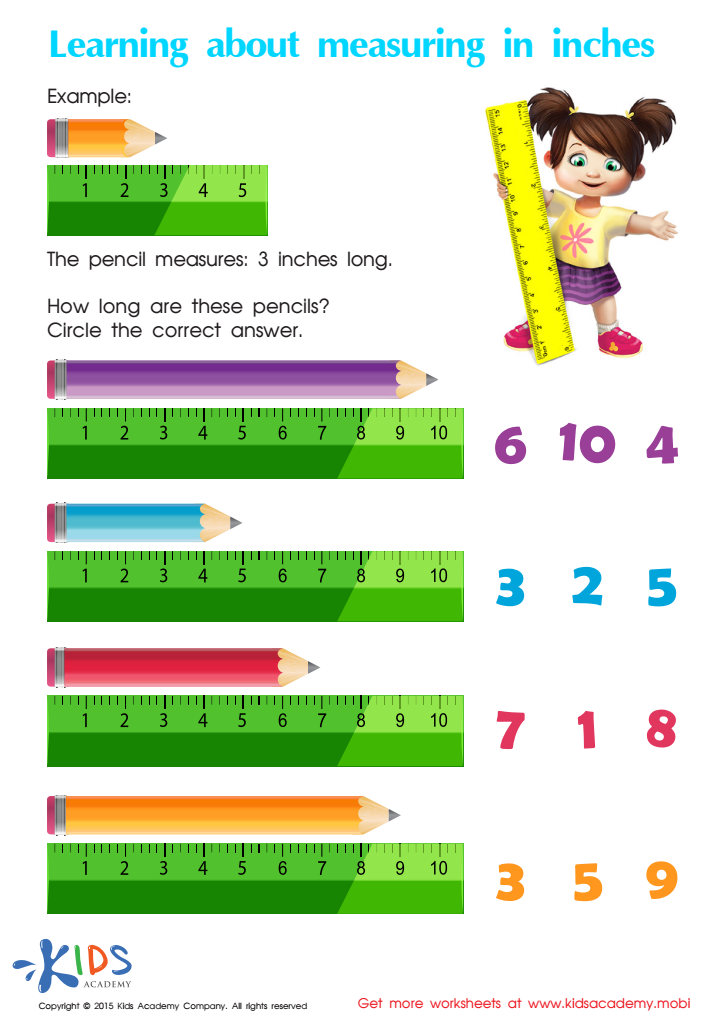

Learning About Measuring In Inches Printable
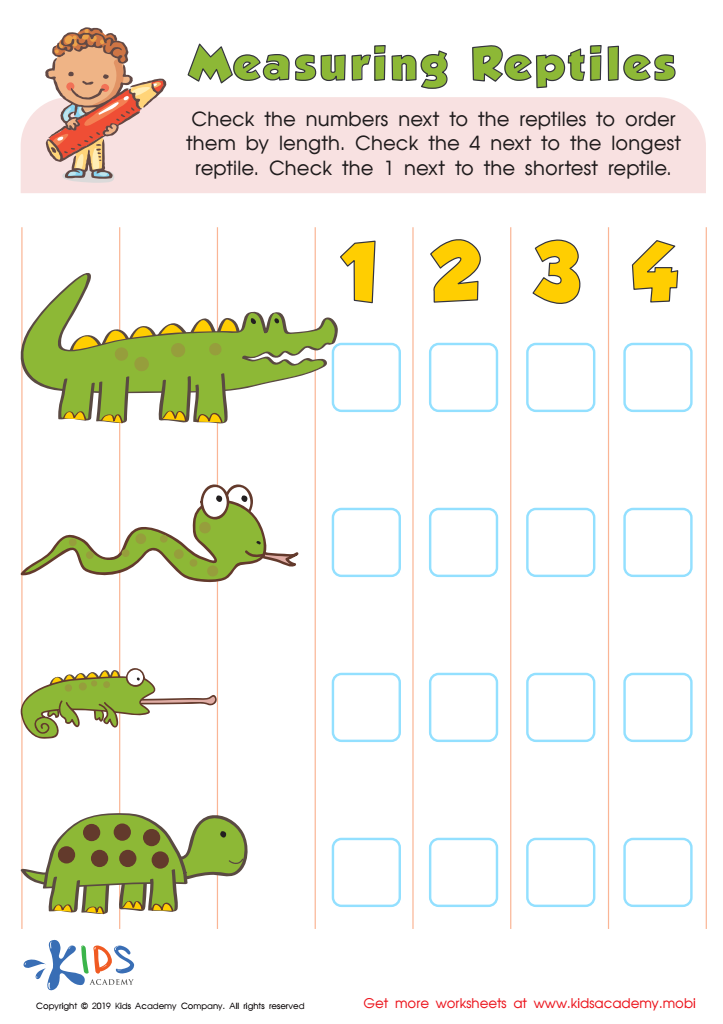

Measuring Reptiles Worksheet
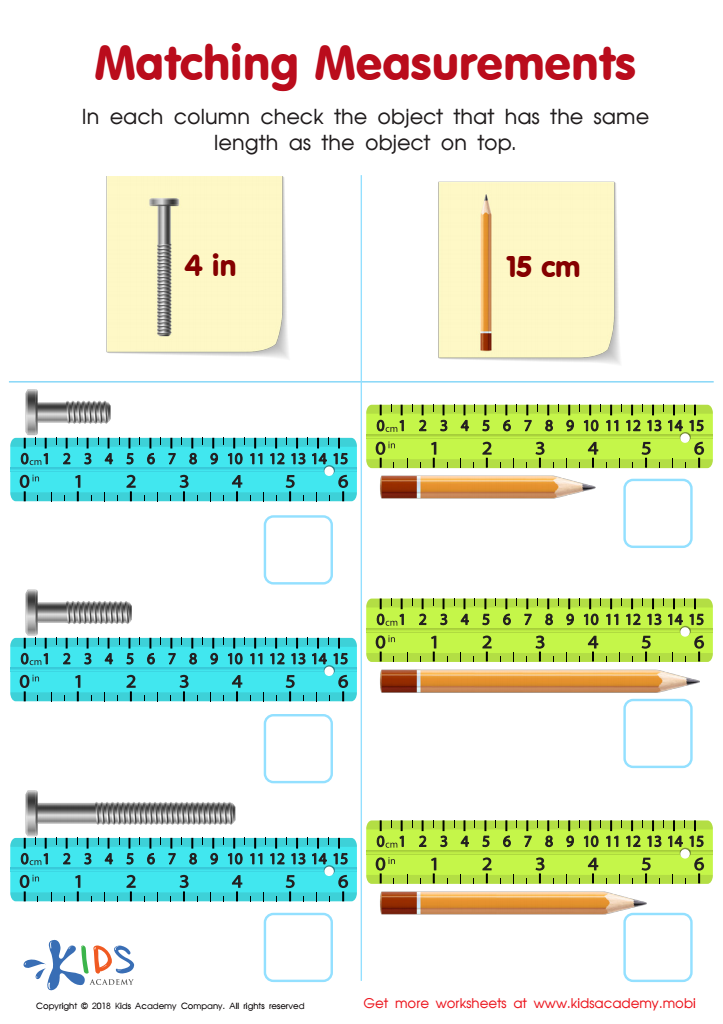

Matching Measurements Worksheet
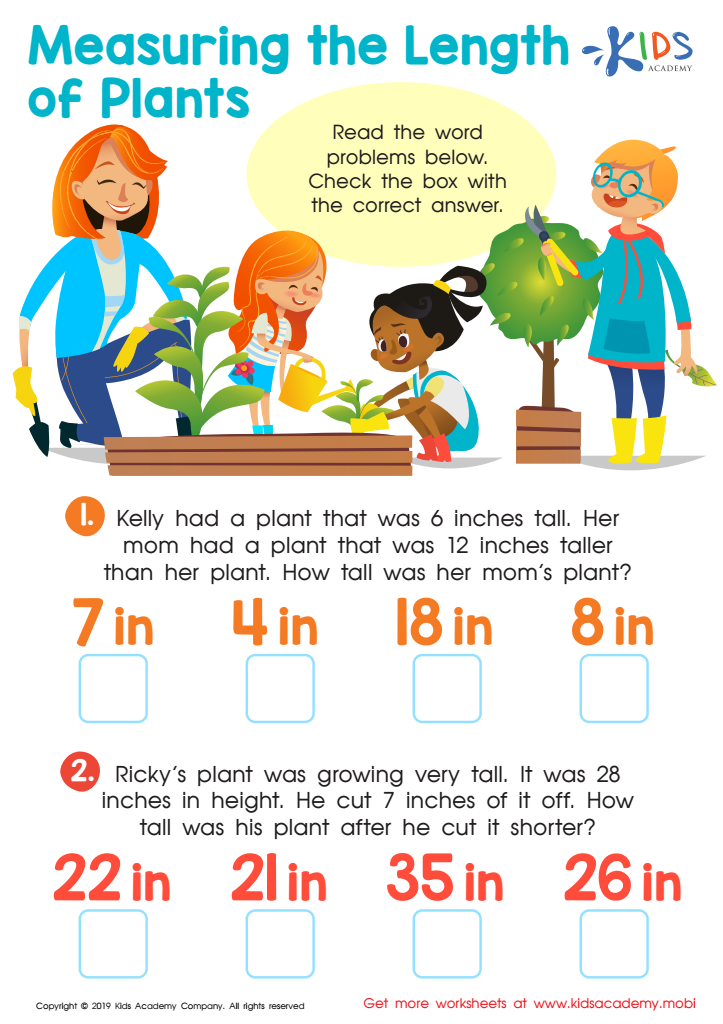

Measuring the Length of Plants Worksheet
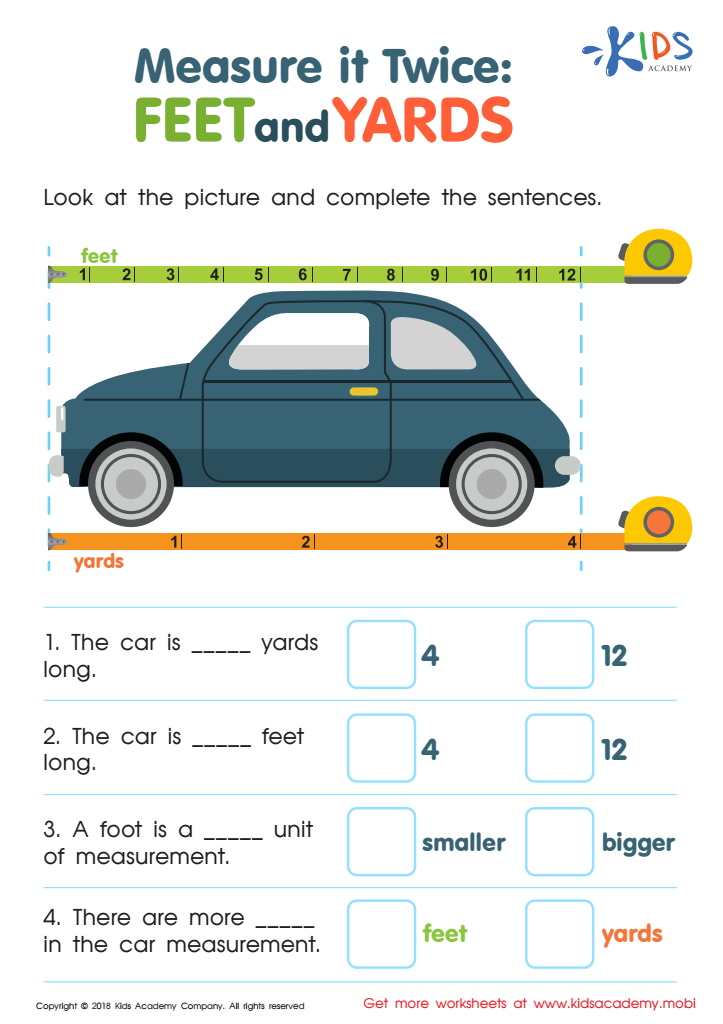

Measure It Twice: Feet and Yards Worksheet
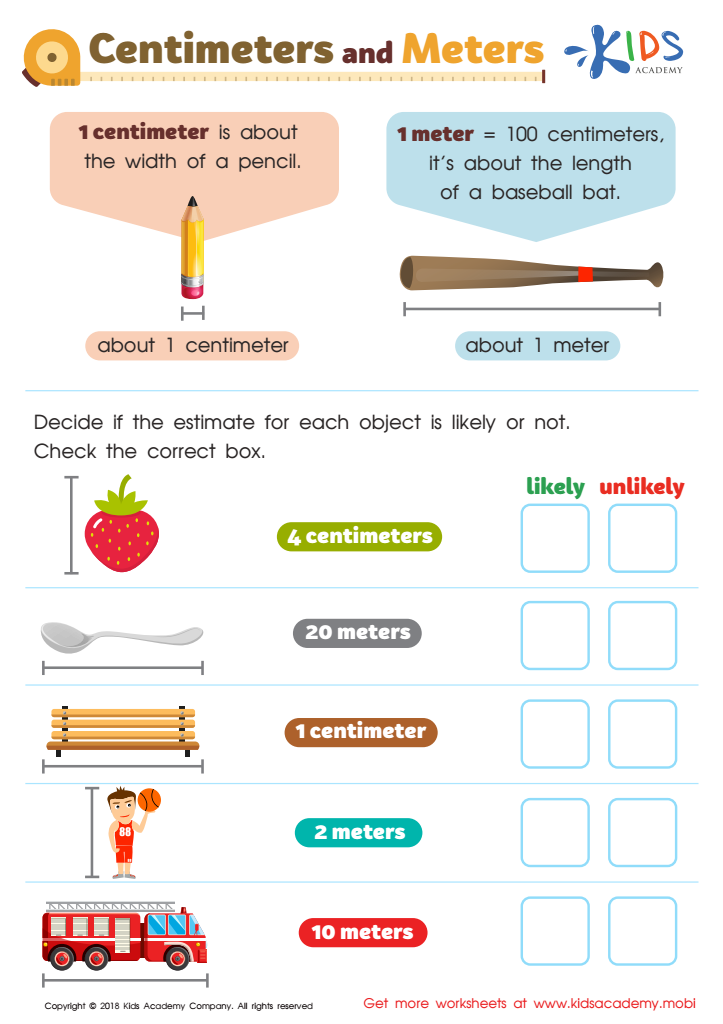

Centimeters and Meters Worksheet
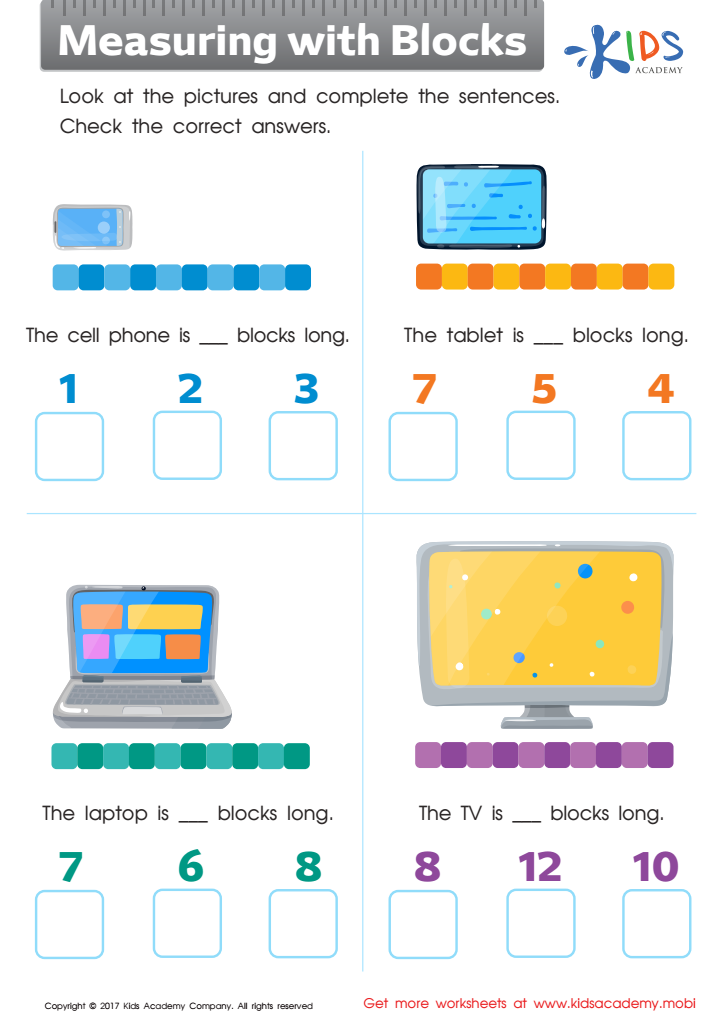

Measuring with Blocks Worksheet
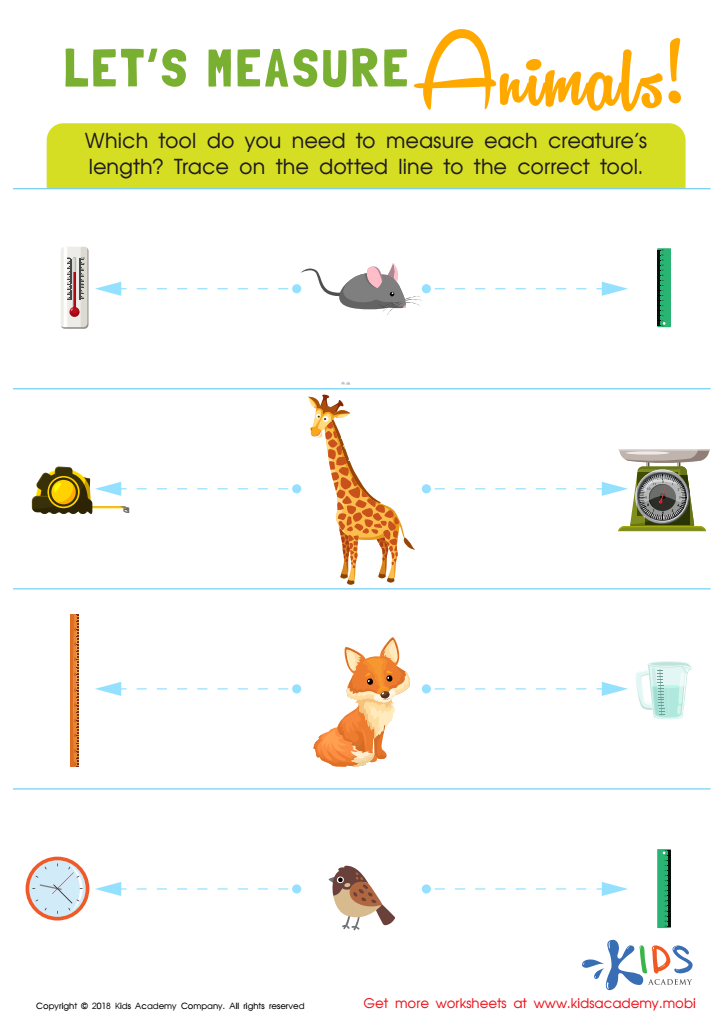

Let's Measure Animals! Worksheet
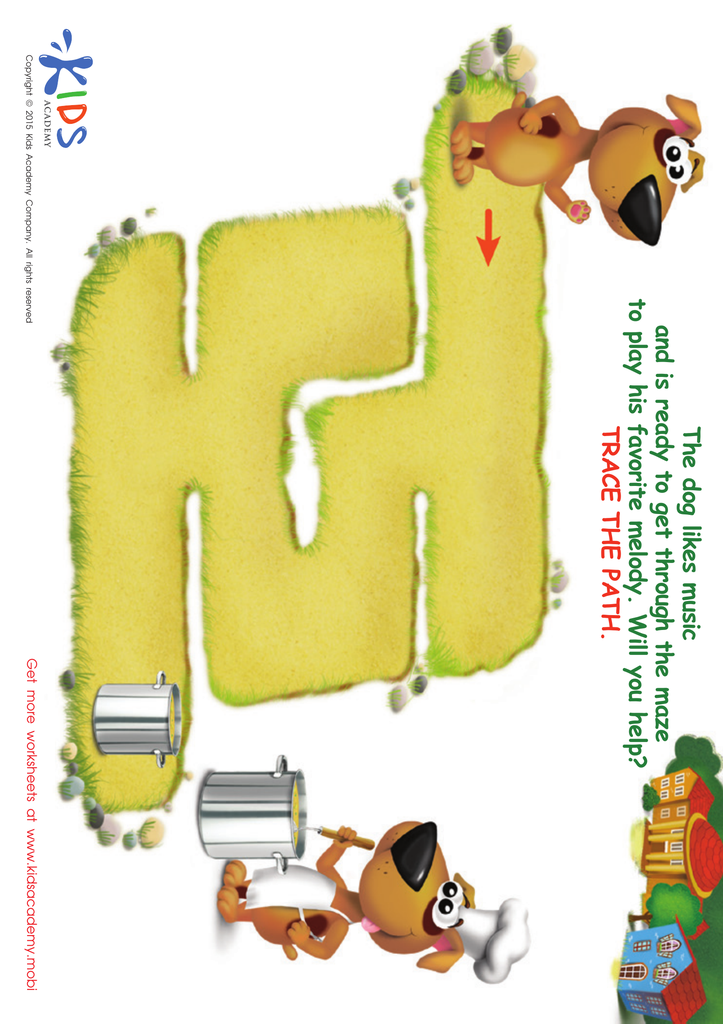

Cook Maze Worksheet
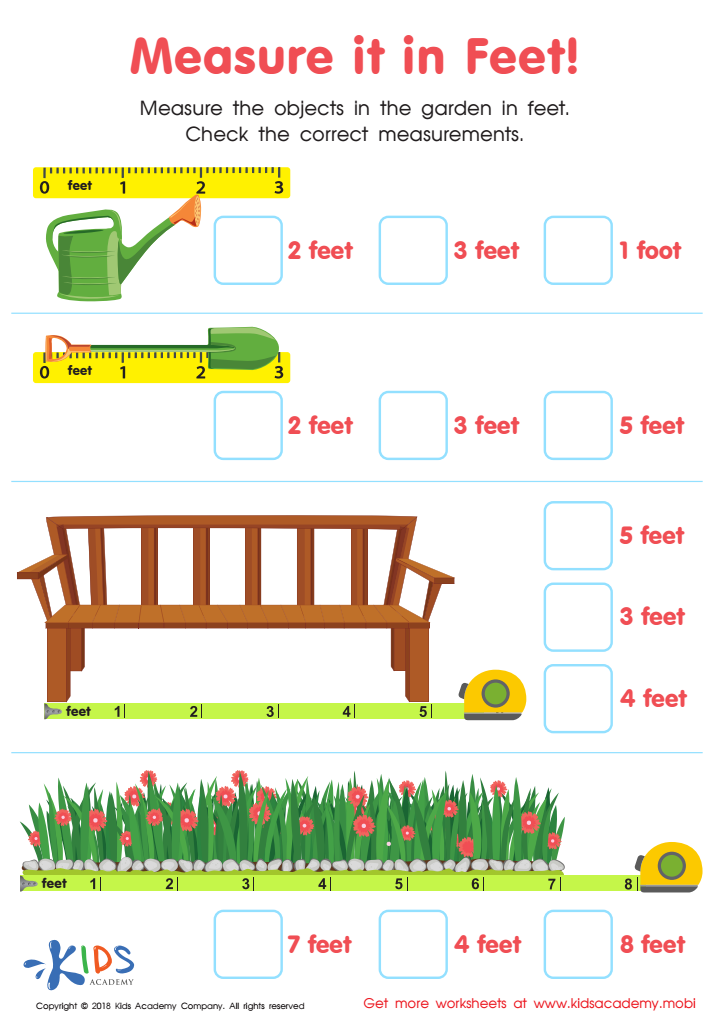

Measure it in Feet Worksheet
Understanding measurements is crucial for children ages 4-8, as it lays the foundation for various essential life skills and academic concepts. At this early age, children are naturally curious and engaging them in measurement activities helps harness this curiosity. Learning measurement supports cognitive development by enhancing critical thinking and problem-solving skills. For example, comparing lengths, weights, and volumes allows children to make observations, predictions, and comparisons, fostering analytical skills that are vital in both everyday scenarios and future academic pursuits.
Moreover, measurement is inherently linked to creativity and play. Activities such as baking, gardening, or building with blocks encourage children to measure ingredients, lengths, or areas, making learning enjoyable and interactive. Such hands-on experiences can make abstract concepts more tangible.
Additionally, understanding measurement promotes numerical literacy and lays the groundwork for future math learning, where concepts such as time, money, and geometry become increasingly relevant. Teachers and parents play a pivotal role in integrating measurement into daily activities, enriching children’s understanding and appreciation of math. Creating a supportive environment where measurement is part of conversations and activities results in confident learners who are well-prepared for the challenges ahead. Ultimately, their comfort with measurements can greatly influence academic success and everyday functioning.
 Assign to My Students
Assign to My Students
























